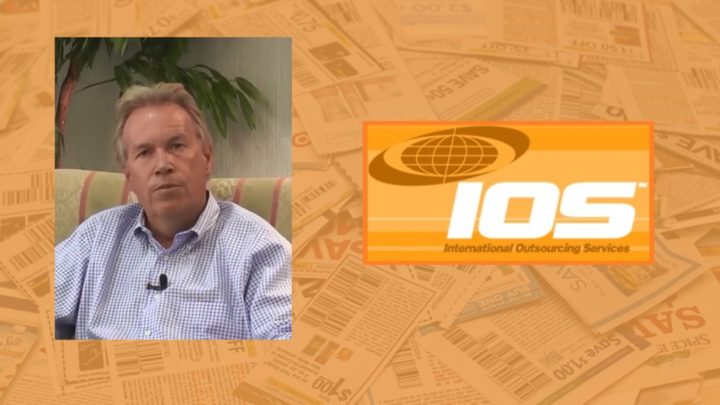
The convicted perpetrator of one of the most notorious coupon crimes of all time is now out of prison, and prosecutors say it’s time for him to pay up. Chris Balsiger was ordered to pay more than $65 million in restitution to the coupon issuers he was convicted of defrauding. But prosecutors say so far, he’s paid just 550 bucks.
Balsiger was the CEO of coupon processing company International Outsourcing Services (IOS), which collected coupons accepted by retailers and submitted them to manufacturers for reimbursement on the retailers’ behalf. But he was indicted in 2007, and convicted about a decade later, for carrying out one of the oldest tricks in the coupon fraud book, on a grand scale – submitting coupons for reimbursement that were never actually used by consumers, and pocketing the cash.
All told, prosecutors estimated that he cheated manufacturers out of some $250 million. In 2017, a judge sentenced him to 10 years in federal prison plus three years of supervised release, and ordered him to pay $65 million in restitution to his victims.
Having now served nearly half of his sentence, Balsiger has been released from federal prison and is now on home confinement. But some five years after his conviction, prosecutors say his victims have yet to see any meaningful efforts to reimburse them.
“As part of his application to be placed on home confinement, defendant Balsiger agreed to make regular restitution payments,” prosecutors informed the court last week. But to date, “Balsiger has paid $550.00 towards his restitution obligation, which now has a balance of $64,999,451.01.”
Balsiger is still challenging his conviction and sentence, and prosecutors note that he has asked to stay any restitution payments pending the outcome. But prosecutors argue that his challenge is “not a sound basis to delay resolution of this matter.” So they’re asking the judge to allow them to seize the $10,000 bond he deposited with the court and apply it toward his restitution.
The two sides have been battling over money ever since the restitution order was imposed. Prosecutors have acknowledged that Balsiger may never be able to fully repay all $65 million that he owes. But they say he has the means to pay a lot more than he has so far. Shortly after his sentencing, prosecutors said Balsiger had “offered to pay $474,244 toward restitution within one year in exchange for a variety of things, including having his sentence reduced to ‘time served’.” Balsiger’s offer was rejected, but prosecutors pointed out that, just by making the offer, Balsiger demonstrated that he “has the financial ability to pay $474,244 toward his restitution within one year” – which he has not done.
At the same time, prosecutors declined to pursue additional financial penalties against Balsiger, because they said it was unlikely he’d ever be able to pay them. “Mr. Balsiger appears to lack the financial ability to fully satisfy his restitution obligation,” they said, so seeking additional financial penalties “would be nothing more than an academic exercise.”
In the meantime, Balsiger has earned one small victory, in that he’s out of prison slightly ahead of schedule, after serving less than half of his ten-year sentence so far. Last year at about this time, a judge rejected his plea for early release, after he argued that his “continued confinement in federal prison places him in grave danger of exposure to COVID-19.”
The judge sided with prosecutors, who said Balsiger was again trying to “manipulate his way out of difficult situations through lies and intimidation.” They cited prison officials who said Balsiger often failed to follow basic safety measures like wearing a mask in common areas of the prison. “While Mr. Balsiger claims to live in fear of contracting the virus,” prosecutors said, “his actions speak louder than his words.”
“The existence of COVID-19 does not warrant the release of every federal prisoner” concerned about the virus, the judge ruled. Besides, “given the extensive nature of the fraud and obstruction, early release would diminish the deterrent effect of the original sentence.”
A year later, though, Balsiger is now free to continue his efforts to clear his name, from the relative comfort of home confinement. And prosecutors, on behalf of the many victimized manufacturers, will likely continue their efforts to get Balsiger to pay what he owes, to the extent that he can. Whichever side ultimately prevails, one thing is certain – for a criminal case that began nearly 15 years ago now, this dispute is still far from settled.













